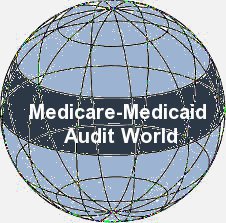 Zone Program Integrity Contractors (ZPICs) are charged with detecting fraud, waste and abuse in Medicare Parts A, B, C, D, Durable Medical Equipment, Prosthetics, and Orthotics Suppliers (DMEPOS), Home Health and Hospice agencies (HH+H), and Medi-Medi (a partnership between Medicaid and Medicare designed to enhance collaboration between the two programs to reduce fraud, waste and abuse). In conducting their work,
Zone Program Integrity Contractors (ZPICs) are charged with detecting fraud, waste and abuse in Medicare Parts A, B, C, D, Durable Medical Equipment, Prosthetics, and Orthotics Suppliers (DMEPOS), Home Health and Hospice agencies (HH+H), and Medi-Medi (a partnership between Medicaid and Medicare designed to enhance collaboration between the two programs to reduce fraud, waste and abuse). In conducting their work,  ZPICs are not limited by time as to the claims they may review or the number of documents they may request “to identify cases of suspected fraud, develop them thoroughly and in a timely manner, and take immediate action to ensure that Medicare Trust Fund monies are not inappropriately paid out and that any mistaken payments are recouped.” In carrying out their responsibilities, ZPICs do not conduct random audits. Instead ZPICs rely on data analysis to detect high frequency of certain services as compared with local and national patterns, trends of billing, or other information that may suggest the provider is an outlier. ZPIC audits may also be triggered by employee or beneficiary complaints to the Office of Inspector General hotline, fraud alerts, or information received from a MAC or other contractor and law enforcement agencies.
ZPICs are not limited by time as to the claims they may review or the number of documents they may request “to identify cases of suspected fraud, develop them thoroughly and in a timely manner, and take immediate action to ensure that Medicare Trust Fund monies are not inappropriately paid out and that any mistaken payments are recouped.” In carrying out their responsibilities, ZPICs do not conduct random audits. Instead ZPICs rely on data analysis to detect high frequency of certain services as compared with local and national patterns, trends of billing, or other information that may suggest the provider is an outlier. ZPIC audits may also be triggered by employee or beneficiary complaints to the Office of Inspector General hotline, fraud alerts, or information received from a MAC or other contractor and law enforcement agencies.
The World of Medicare Contractors
As the number of stand-alone health care providers continues to decrease, the number of corporate relationships between companies hired by CMS to ensure the integrity of the Medicare program and Medicare providers continues to increase. The result of this consolidation is the growing possibility that these relationships will not be detected or adequately addressed by CMS, with the result that complaints of wrongdoing against some providers will not be investigated as vigorously as complaints against other providers.
 Medicare-Medicaid Audit World
Medicare-Medicaid Audit World








